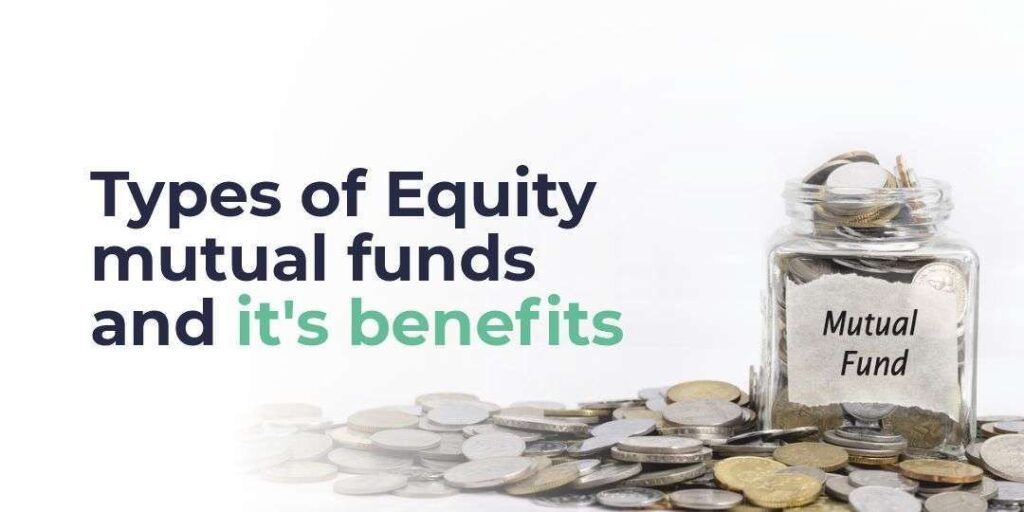Allocating funds to assets to improve your future is known as investing. Investments are undertaken to produce returns, which increase the initial amount invested.
Top 7 types of investment options available in India
There are many different investment options available to you. However, you must be sure that you are only investing in options that match your risk tolerance and fulfill your needs.
1. Direct Equity
The most successful investment vehicle is probably direct equity, sometimes known as stock investing. Purchasing stock in a firm entitles you to a part of that business.
The expansion and improvement of the business are directly financed by you. To profit from your investment, you must have enough time and market understanding.
Stocks are made available by publicly traded firms through recognized stock exchanges. The best investments for the long run are stocks.
Due to the impact of various economic and commercial factors on equities, you must actively manage your investments. Additionally, you must be aware that the returns are not ensured and be prepared to accept the risks involved.

Benefits and Types of Equity Mutual Funds
2. Mutual Funds
The last few decades have seen the development of mutual funds. A mutual fund pools investments from different institutional and individual participants who share the same investment goal.
A financial expert known as the fund manager oversees the pooled funds and makes investments in securities and other assets to maximize returns for investors. Equity, debt, and hybrid funds are the three main categories of mutual funds.
Debt mutual funds invest in bonds and papers, whereas equity mutual funds invest in stocks and instruments relating to the stock market. Equities and debt instruments are both invested in by hybrid funds.
Mutual funds are adjustable investment products that allow you to start and stop investing whenever you like. Since the fund manager takes care of everything, investing in mutual funds doesn’t require much time or expertise.
To invest in mutual funds, all you need to do is invest and the fund manager will take care of the portfolio construction. However, it is advised to only invest in funds whose risk profiles and goals align with your own.
Returns are not guaranteed because they are based on market fluctuations. Please take note that a fund’s previous performance does not guarantee future results.
3. Recurring Deposits
Recurring Deposit (RD) enables investors to make a fixed monthly investment and receive a fixed rate of interest. RDs are available through bank and post office branches.
An RD enables investors to make small monthly investments to build capital over a predetermined time. RDs provide total capital protection in addition to returns that are ensured.
4. Fixed Deposits
FDs are a type of investment that banks and other financial institutions offer. You deposit a sum of money for a set period and receive a fixed rate of interest. Fixed deposits, as opposed to mutual funds and stocks, provide total capital protection and guaranteed returns.
However, since the returns stay the same, you make a compromise. The interest rate on fixed deposits varies based on the state of the economy and is set by the banks per the RBI’s policy review decisions.
Although fixed deposits are traditionally locked-in investments, investors are frequently permitted to use them as collateral for loans or overdraft facilities. There is also a fixed deposit with tax benefits that has a 5-year lock-in.
5. Employee Provident Fund
One of the retirement-focused investment vehicles is the EPF, which enables salaried people to benefit from a tax credit under Section 80C of the Income Tax Act of 1961. EPF deductions are normally made as a percentage of an employee’s monthly pay, and the employer also contributes an equal amount.
The EPF withdrawal corpus is completely tax-free once it matures. Each quarter, the Indian government also sets the EPF rates and offers a guarantee on your EPF deposits.
You should be aware that your EPF account matures only after you reach retirement and that you may only access your assets in the EPF if you meet certain requirements.
6. Public Provident Fund
PPF is a 15-year lock-in investment vehicle that offers long-term tax savings. The Indian government is the one who is offering it, and the government guarantees back your money. The Indian government reviews the PPF interest rate every three months.
After 15 years, the investor can withdraw the full corpus completely tax-free. PPF permits partial withdrawals and loans as well, provided a few requirements are satisfied.
If certain requirements are met, premature withdrawals are allowed, and when your investment reaches maturity, you can prolong it for an additional 5 years.
7. National Pension System
A relatively recent investment option for reducing taxes is the National Pension System (NPS). Investors who subscribe to the NPS plan must remain locked in until retirement and can expect larger returns than those from PPF or EPF.
This is so because the NPS provides plan options that also invest in stocks. A portion of the NPS maturity corpus, which is not tax-free, must be used to buy an annuity that will provide the investor with a regular pension.
Only 40% of the total accumulated corpus may be withdrawn as a lump sum; the remainder is invested in an annuity plan. There are some government personnel who must subscribe to NPS.
FAQs
What are the 3 main types of investments?
Stocks, bonds, and real estate are the three basic types of investments. Stocks represent ownership in a company, bonds are debt securities, and real estate involves owning property for potential income or capital appreciation.
What are the six types of investments?
The six types of investments encompass stocks, bonds, real estate, mutual funds, commodities (e.g., gold or oil), and alternative investments (e.g., hedge funds or cryptocurrencies). Each type offers varying levels of risk and potential returns, catering to different investment goals and preferences.
What is investment and its types?
Investment refers to the allocation of capital with the expectation of generating a return or profit over time. Types of investments include financial assets like stocks and bonds, tangible assets like real estate, and alternative investments like commodities or cryptocurrencies.
Conclusion
You should carefully select investments after conducting a thorough study. Avoid falling into schemes that promise big profits quickly, and always periodically evaluate your mutual fund and stock investments.
Take into account the tax consequences of the investment returns you receive. Maintain simplicity and stay away from complex assets that you are unfamiliar with.
If you have any questions or need any advice, our team of expert financial advisors is always available to you.
